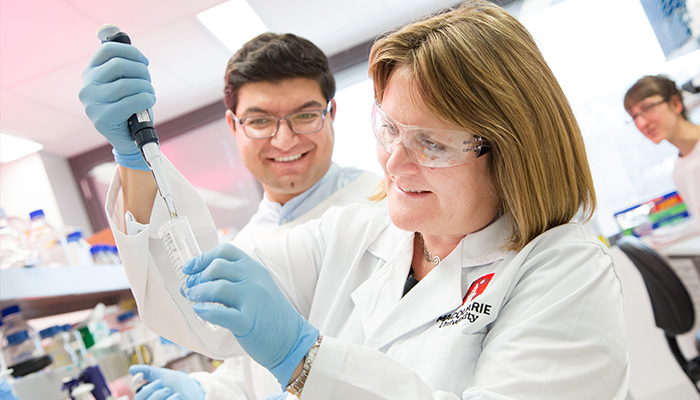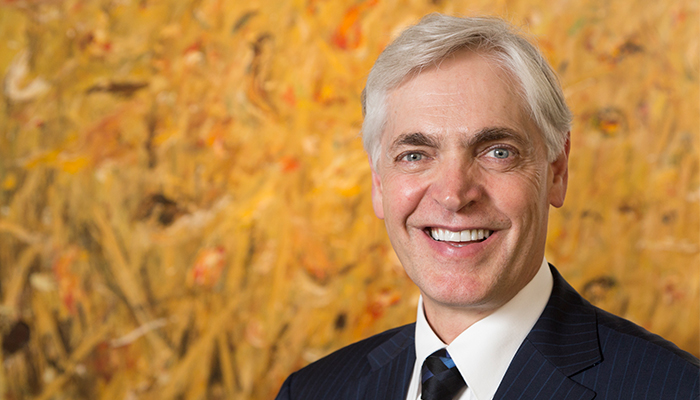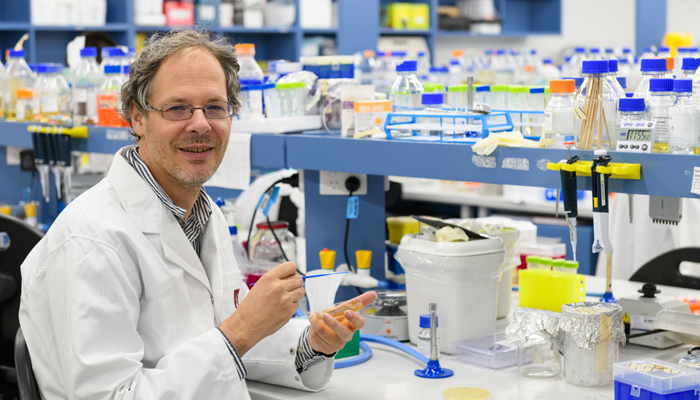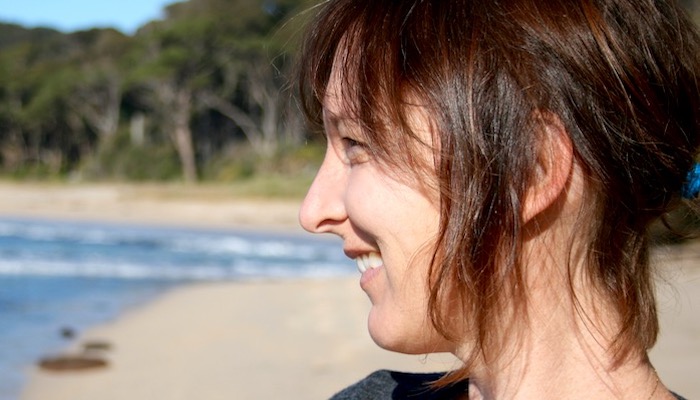Collaboration is in the DNA of Macquarie University.

Effective treatments: Macquarie University is undertaking world-leading research to understand why motor neurone disease is on the rise and to develop therapies to fight the devastating illness.
Through it, we are helping children to discover the joy of reading; seeking cures for diseases such as motor neurone disease and melanoma; developing heat-resistant crops for a climate-changed world; and exploring ways the aged care sector can better care for the elderly.
The list goes on.
Macquarie was created 55 years ago in the northern suburbs of Sydney to be collaborative and entrepreneurial, and to engage closely with end-users to ensure its research translated into real-world impacts.
There should always be a hunger and an aspiration to do more and do better, to push the boundaries and look for new frontiers.
Today, those impacts happen all around us, every day. The University sits at the heart of the Macquarie Park Innovation District, a precinct that is revolutionising the way research and collaboration is catalysed.
The park is home to the Macquarie University Hospital, the Macquarie University Incubator, more than 180 large international companies, and 200 small and medium businesses.
Among those is MultiLit, where evidence-based, cost-effective literacy intervention programs help hundreds of children with reading disabilities using a methodology developed at Macquarie, and continually informed by ongoing research.
Seattle-based VoiceBox Technologies in partnership with the University opened an office in the Park in 2016, to commercialise Macquarie research that is combining linguistics and computing to create novel voice-recognition technologies.

Global reputation: Pretorius is internationally recognised as a pioneer in molecular microbiology and biotechnology and in translating research outcomes to innovative industry applications.
Start-up Modular Photonics is taking to market the Plug n’ Play Omplex Passive Silica Chip, a Macquarie invention which cheaply and quickly retrofits legacy fibre-optic networks to speed up data flow without the need to recable.
They are only three among many examples, all reflecting a culture of collaboration that extends globally, but starts in our own backyard.
Structures such as faculties and departments are there to organise the university, but not to organise our research which takes place across disciplinary boundaries. Whether you are in social sciences or engineering or medicine, it doesn’t matter – we look at a problem and we try and solve it. We hunt in packs.
- Zebrafish take science a step closer to an MND cure
- Faster, higher, emotionally stronger: risks help kids avoid anxiety
- How baker's yeast made in a lab is set to change the world
In 2013 and 2014, the university went through a 15-month consultation across the faculties to figure out what we as a university wanted to achieve with our research.
Out of that process came five future-shaping research priorities: healthy people, resilient societies, prosperous economies, a secure planet and innovative technologies.
We also established four broad objectives for academic achievement. The first of those is to accelerate research performance, which involves all our staff members aspiring for excellence. The second is to prepare world-ready Higher Degree for Research (HDR) candidates. There are no longer honours degrees at Macquarie; instead we have a two-year Masters of Research because we believe it is a better pathway either into a PhD or beyond university.
It is called the Bologna Model, which brings us into line with many northern hemisphere universities and therefore opens the way for co-supervision of HDRs and research partnerships. For instance, we have a partnership with the University of Hamburg through which students do half their PhD in Germany, and half at Macquarie, working on collaborative projects.
Another of our objectives is to have a world-changing impact, and we define that not only in terms of high-impact journal articles or books, but impact on policy and technology, in ways that improve quality of life and make the planet more sustainable.

Leader: Distinguished Professor Ian Paulsen heads up the Australian arm of the global Yeast 2.0 consortium.
And we aim to be a world-recognised collaborator of choice, and not only with international universities, but with local universities, research agencies such as the CSIRO, and end-user stakeholders including industry. If people partner with us, they should know that they can trust us; that we will deliver our part of the bargain no matter what.
Within the Macquarie Park Innovation District, we seek to match our capabilities and areas of expertise with the needs of end-users such as Cochlear, Optus and Australian Astronomical Optics.
But we reach out nationally and globally, too. Figures in the university’s latest annual report showed that 102 countries enjoyed research collaborations with Macquarie.
- The mysteries of dyslexia unravelled
- Bright idea: Lights under boards may hide surfers from sharks
- Aged care reforms stumble as older Australians struggle to stay at home
The Yeast 2.0 project is an example of a truly international, world-changing collaboration that could ultimately reduce humanity’s reliance on fossil fuels. Since 2014, teams of scientists across five countries have been working to create the world’s first synthetic complex organism: a designer, living version of baker’s yeast. In Australia, Macquarie has been the project’s lead institution, working with teams in the US, China, Britain, and Singapore.
This partnership has grown tighter over the years – akin to the concept of ‘amicitia’, a word borrowed from ancient Rome. In the spirit of ‘amicitia’, collaborative action is performed in an environment of mutual respect balanced with self-interest: one commits to collaborate and to contribute, but one is never expected to experience harm or to neglect one’s own self-interest.
Back at the Macquarie University campus, in such a friendly and collaborative place you have to be careful it’s not cosy. There should always be a hunger and an aspiration to do more and do better, to push the boundaries and look for new frontiers, and that is what collaboration offers to a university such as Macquarie that embraces those ideals.
Professor Sakkie Pretorius is Deputy Vice-Chancellor (Research) at Macquarie University.
This article was first published in the Australian newspaper's Reseach Magazine on September 25, 2019.



